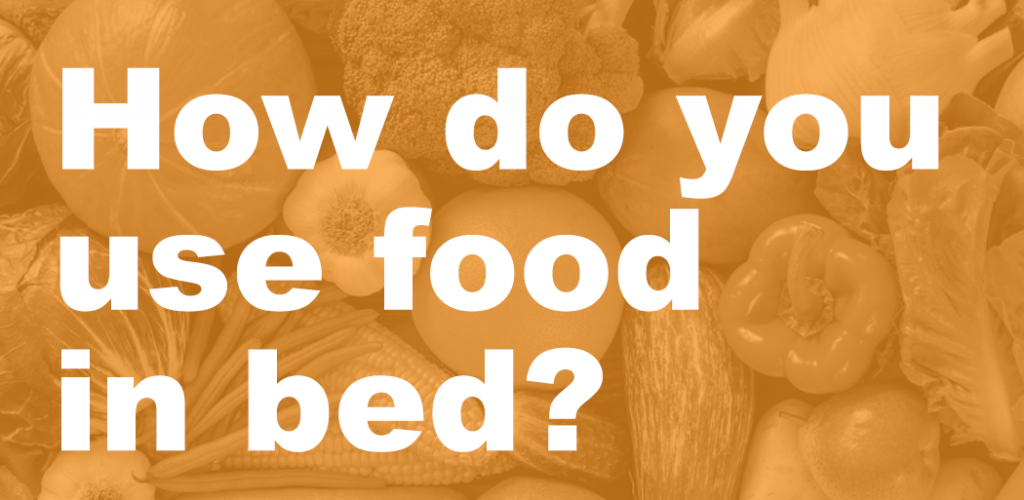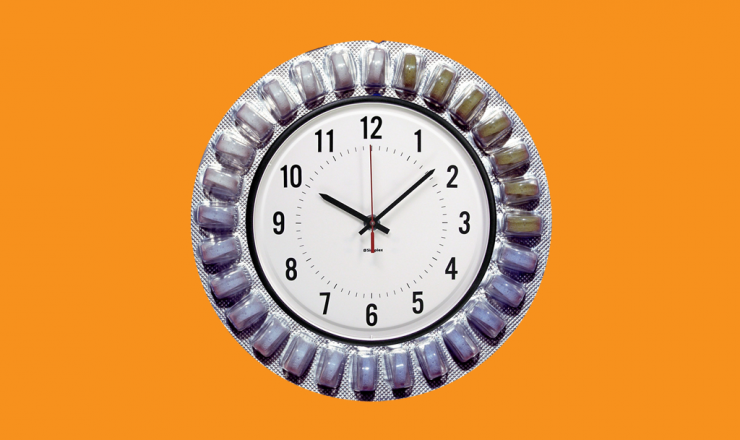

FAQ: My partner has a fantasy of sometimes using food when we have sex. I’ve never done that before. Is it even safe? What other things should I keep in mind about it?
Using food during sex is a really common fantasy combo! Maybe it’s because food is easier to get than sex toys are (cheaper, no age limits, etc.). Or maybe it’s because food already involves mouths? Who knows! For people interested in incorporating food into their sex lives, here are some things to consider:
While food can’t increase your risk of pregnancy or STIs on its own, there are still a number of ways that food can impact safer sex practices.
Using condoms can help limit your body’s contact with food bacteria and prevent fully losing broken food items inside your body, but it’s still generally recommended to avoid inserting anything.
Speaking of condoms, it’s worth being mindful about what kinds of food oils you’re incorporating. Coconut is a common oil that people work into their sex lives (largely because of the smell and flavour), but any oil or butter can break down the latex in condoms, making them less effective at preventing STIs and pregnancy. If you really want to have a lubricant that adds flavour, it might be worth saving coconut oil for non-penetrative activities, or seeing what flavoured lubes you can buy at a pharmacy. Many sexual health sections will stock sugar-free flavoured products that are safe to use.
Lastly, it’s worth remembering that the skin around your genitals tends to be more sensitive than skin on your hands or other parts of your body. If you have a mild allergic reaction to a food on another part of your body, there’s a good chance it will be a more dramatic reaction if it comes in contact with your genitals.
It’s also generally recommended to avoid any spicy food. It’s never not painful.
Playing with your food tends to be really messy. Crumbs, spills, dribbles – there’s always lots to clean up! Some tips for keeping a tidy space include:
Some foods (like whipped cream or chocolate sauce) are stereotypically used for food play, which is fine, but remember that dairy and sugary products can get really sticky or stinky if left out of the fridge or once they’ve been in someone’s mouth.
Food can also be involved before sex, not just during. There are some foods that are considered aphrodisiacs, which are substances that are said to help stimulate sex drive. Things like oysters, chocolate, strawberries, and even avocados are foods that can help people feel more turned on. Consider eating these ahead of time to help inspire a sexy mood.
On the other hand, some foods can dull the mood. Eating lots of meat or dairy can make you feel too sleepy. Being dehydrated, or consuming too many stimulants or depressants (including caffeine, alcohol, or drugs) can often make your body feel lethargic or too uncomfortable for sex.
These are just general guidelines. Knowing what and how much you want to eat before sex will be different for everybody, and you may just have to experiment to find what works for you.
If you have questions about this topic, feel free to contact one of our peer educators. [Link]
Last Updated: November 2020

Remembering to take your birth control pill at the same time every day can be tricky. This post covers what people can do in the event that they are late/forget taking a pill.

The fabulous folks at SOY H.E.A.T. have created some brand new videos to help folks talk about Allyship, Intersectionality, and Pronouns!

What’s one thing that people don’t talk enough about when it comes to having sex for the first time: Pleasure! Join us for this fun and breezy conversation about some of the myths, worries, and strategies people can use when it comes to having sex for the first time.